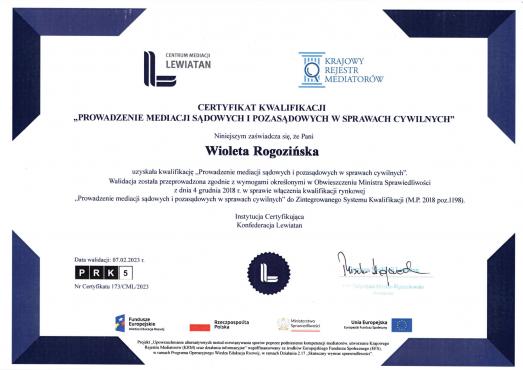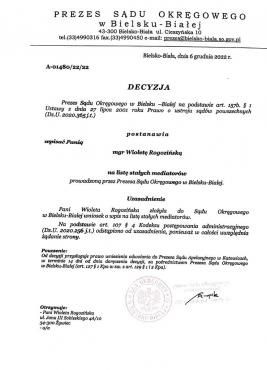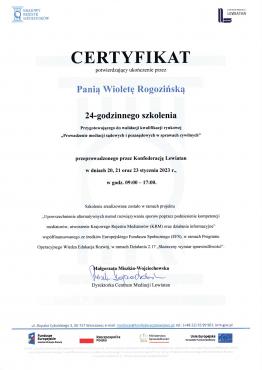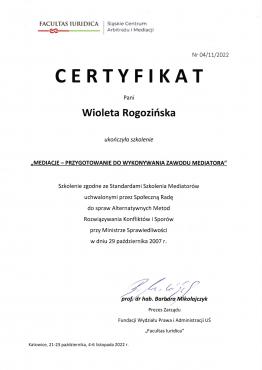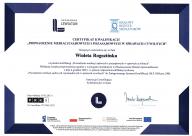MEDIATION

Mediator Wioleta Rogozińska is authorized to conduct both judicial and out-of-court mediation.
The scope of mediation includes civil mediation.
What is mediation?
Mediation is a way to work out a dispute resolution satisfactory to the parties through voluntary and confidential talks. These talks are conducted by a mediator - an impartial and neutral third party. His tasks during mediation include supporting communication, relieving any tension or stress, and helping to reach an agreement.
Electronic mediation (e-mediation) is a conflict resolution process in which a mediator conducts a mediation meeting using means of remote communication.
Types of mediation
In court mediation, the court appoints a mediator from the list of permanent court mediators. The mediator himself contacts the parties, inviting them to a meeting. Judicial mediation is characterized by the fact that it has a statutorily set time limit and specified costs of mediation proceedings. The costs of court mediation are determined by the relevant regulations.
In the case of out-of-court mediation, the parties choose the mediator by approaching him together, or one of the parties comes to the mediator and asks to contact the other party on his behalf. The mediator contacts the other party to the conflict and submits a proposal to start mediation. The parties agree on the date of the meeting, and the mediator proposes a location that is neutral for everyone. The costs of out-of-court mediation are specified in the mediator's agreement with the parties.
Basic principles of mediation
Voluntary means that:
- the parties to the conflict are not forced to reach an agreement,
- voluntarily agree to participate in the meeting,
- they may withdraw at any stage of the mediation procedure,
- the mediator must not exert any pressure to induce the parties to participate in mediation.
Impartiality is related to:
- the attitude of the mediator who does not favor any of the parties,
- is objective,
- people participating in a mediation meeting have equal rights and are treated equally,
- the mediator takes no sides,
- regards pages with respect.
Neutrality manifests itself in the following:
- the parties are not suggested a specific solution,
- the mediator is to help the parties to the conflict to make their own decisions,
- The mediator tries to make the decisions made by the parties more realistic and specific.
Mediation is characterized by speed:
- takes less time than court proceedings,
- the conflict can be resolved already at the first mediation session,
- prevents the unnecessary stress that could be associated with multiple court appearances and a multi-year trial.
Mediation is based on professionalism, which means that:
- the mediator is a person fully trained and competent to perform his role,
- makes every effort to ensure that the parties show mutual respect,
- mediation proceedings are structured and consist of specific stages, the implementation of which is supervised by the mediator.
Confidentiality means that:
- all matters and information provided at the meeting are confidential,
- the mediator does not reveal to anyone what he has learned,
- the mediator cannot be questioned as a witness about these facts,
- this rule is intended to guarantee a sense of security to mediation participants.

